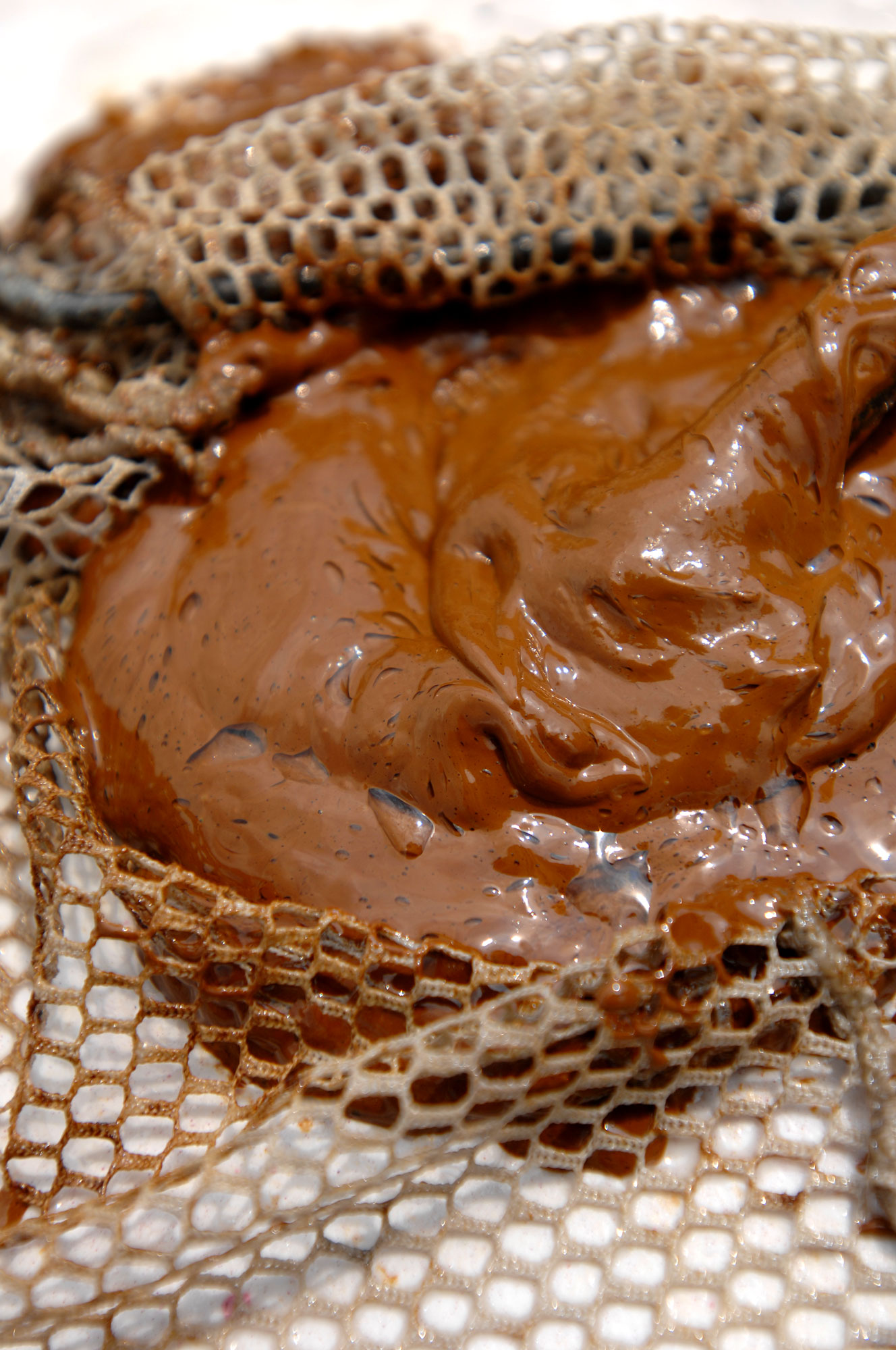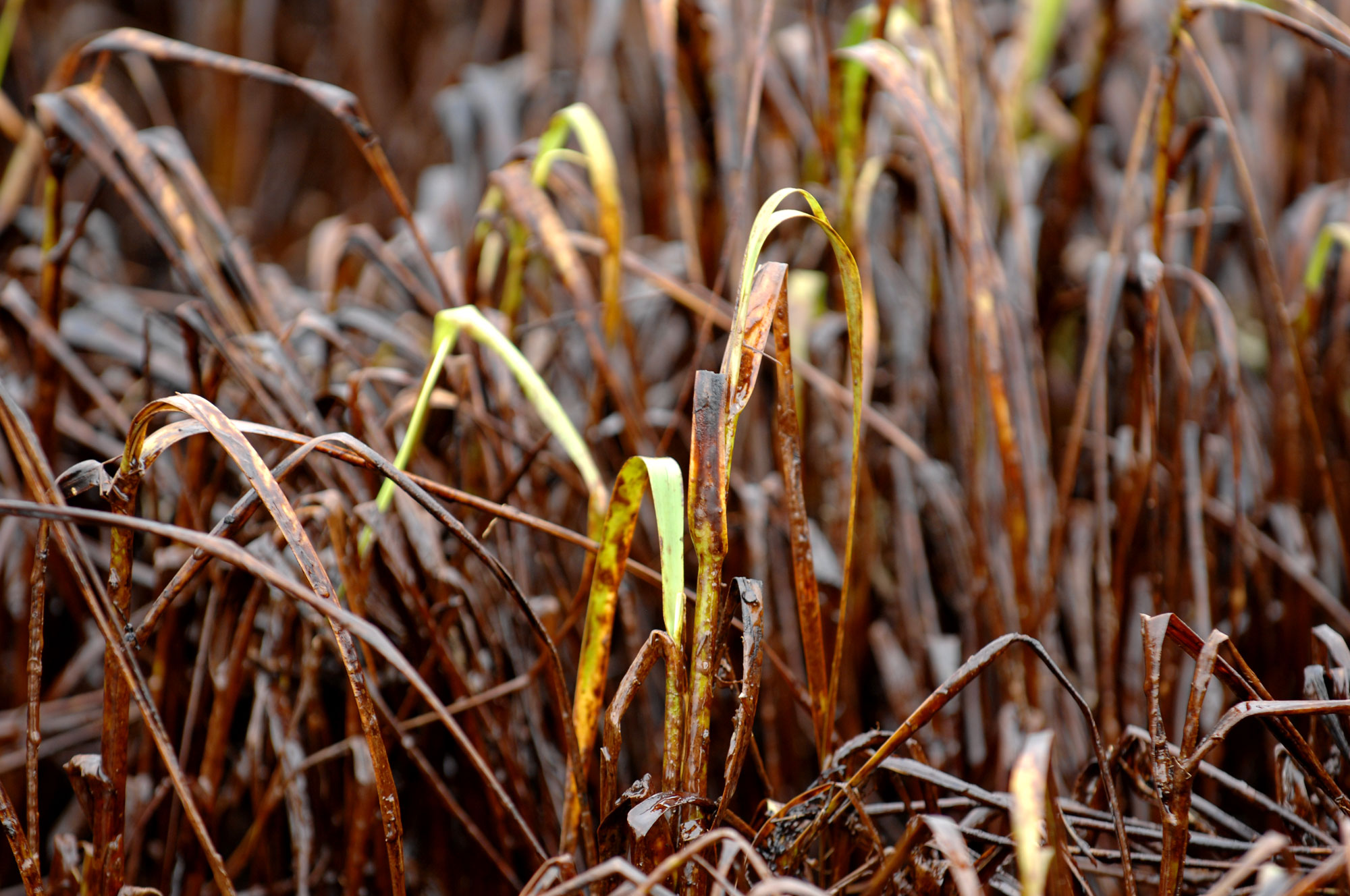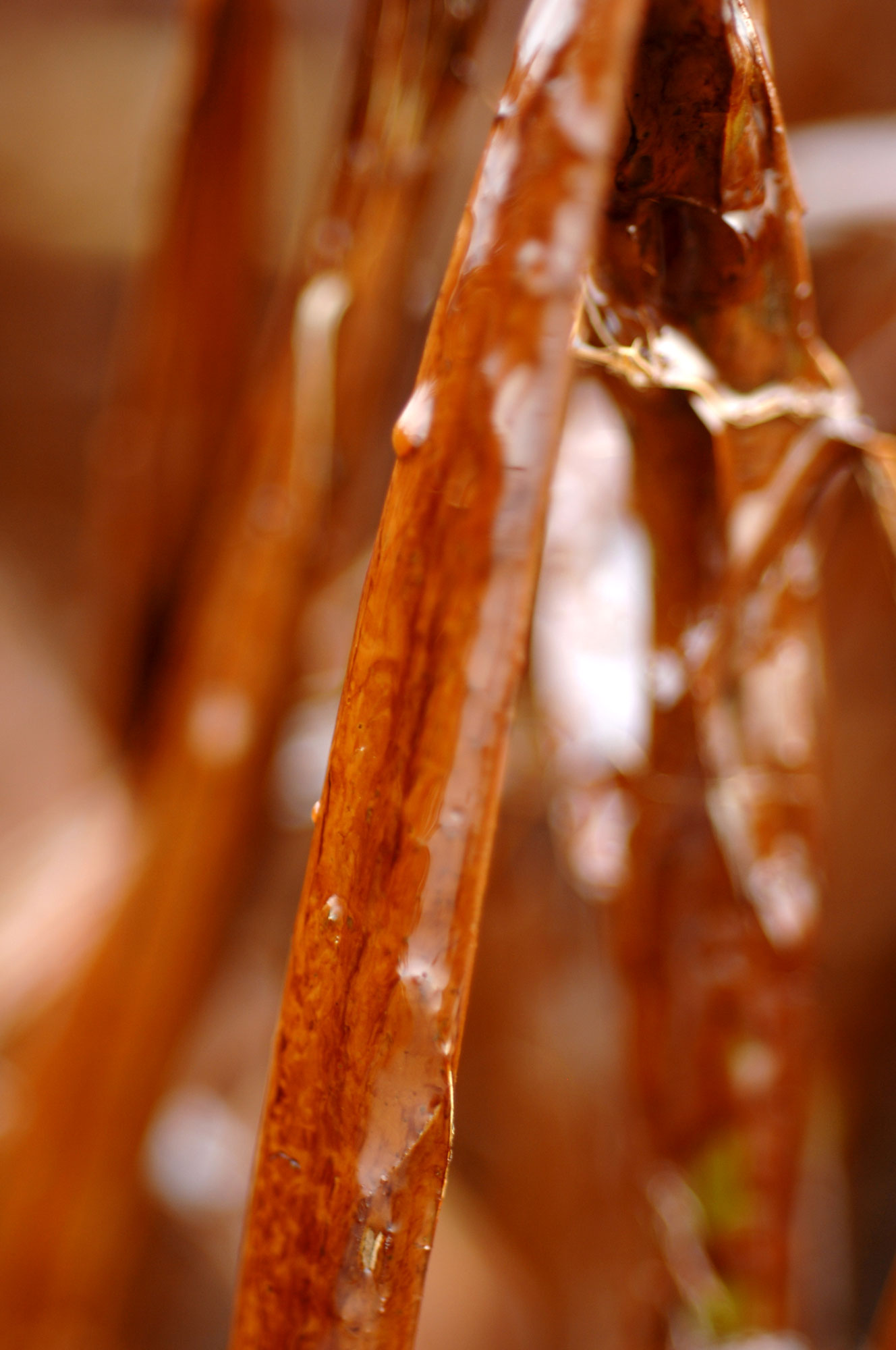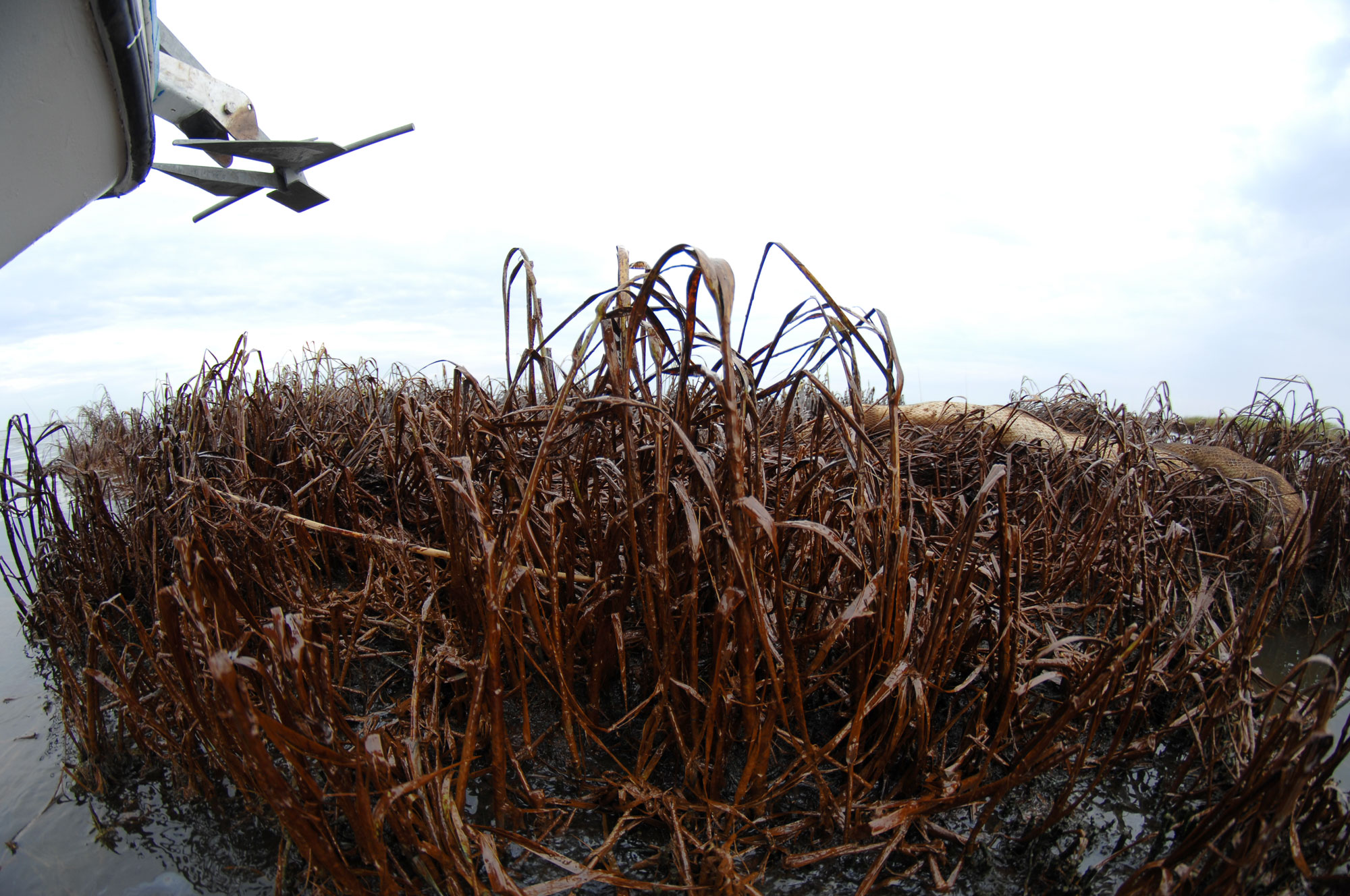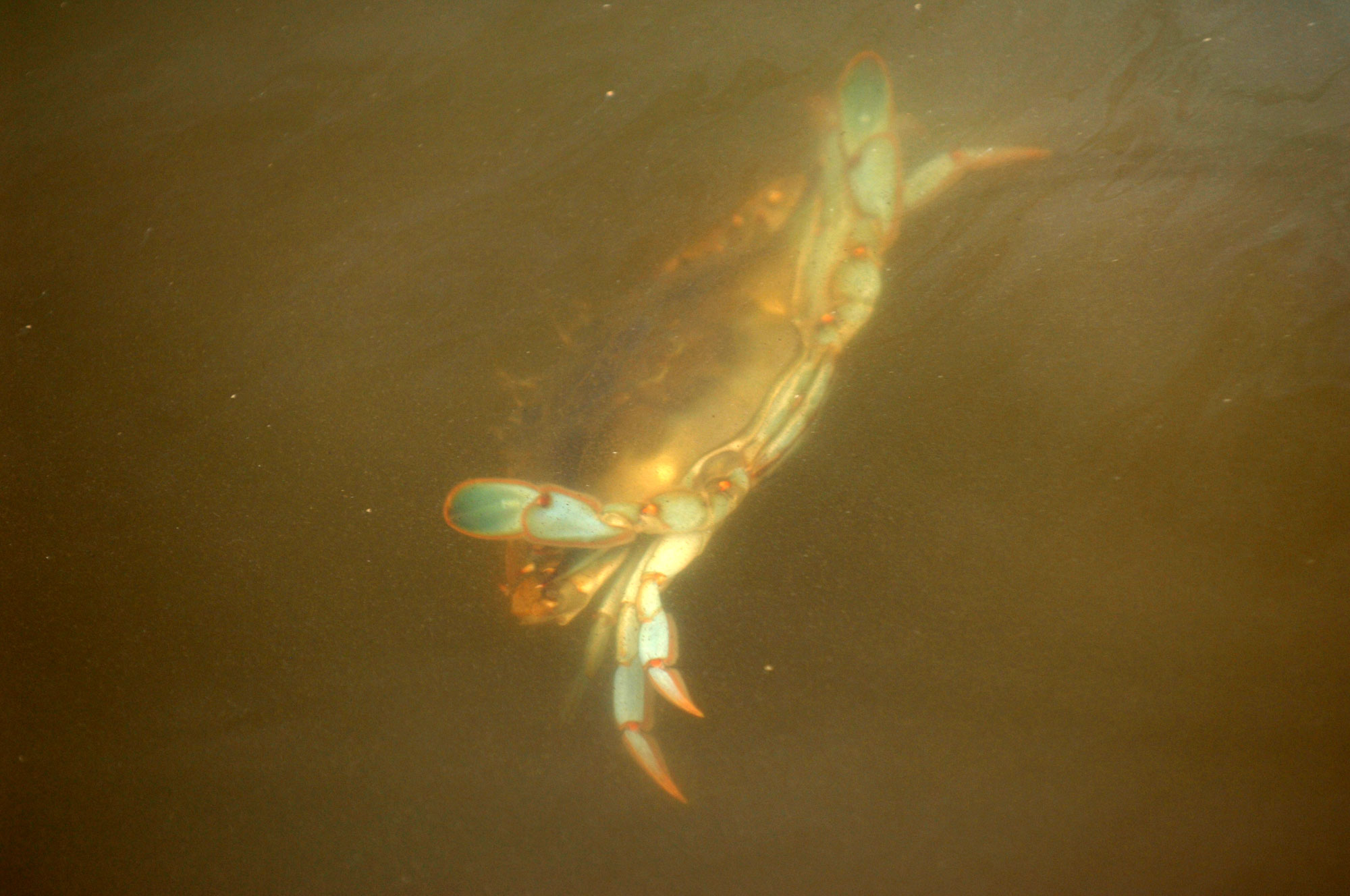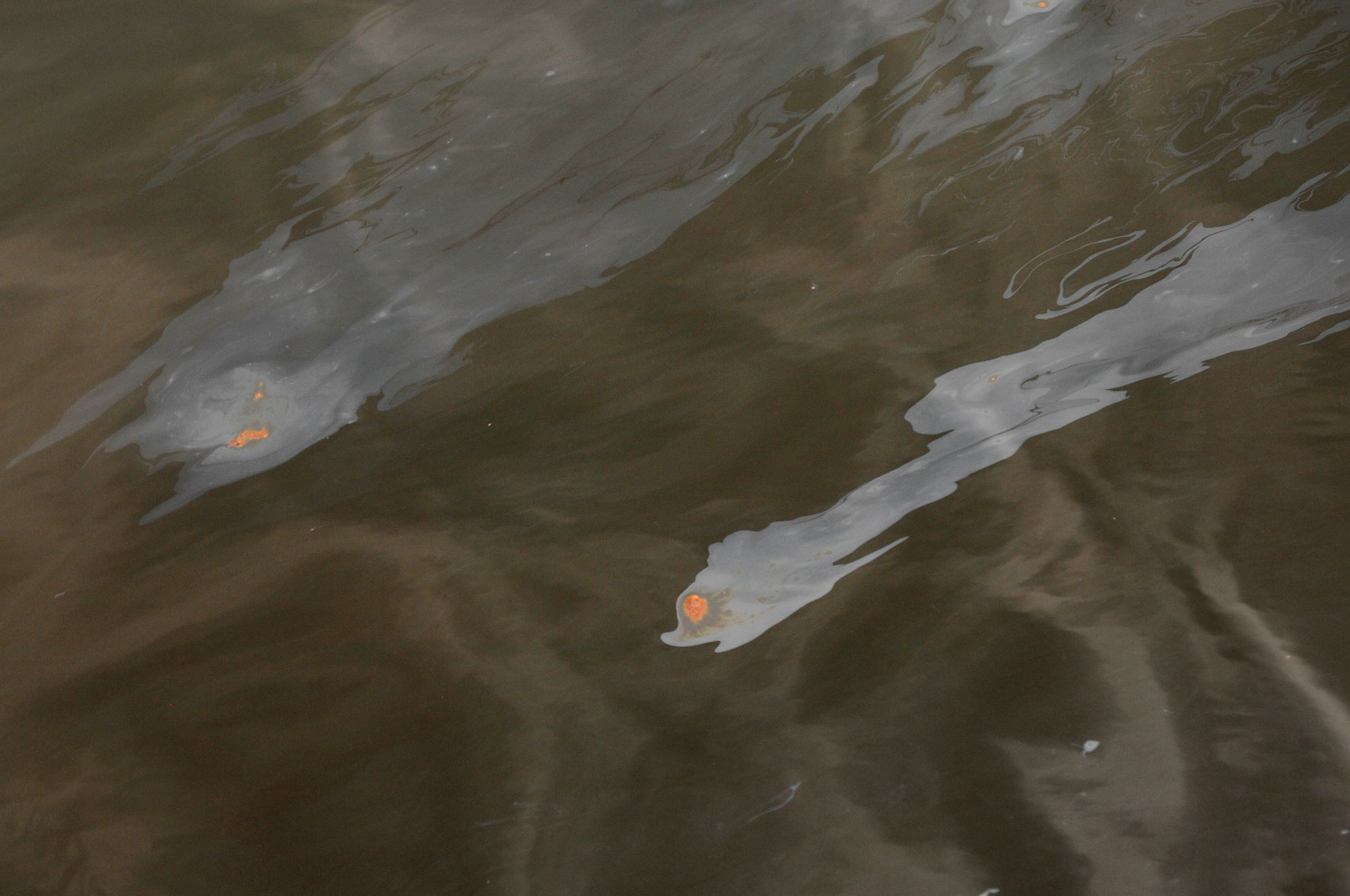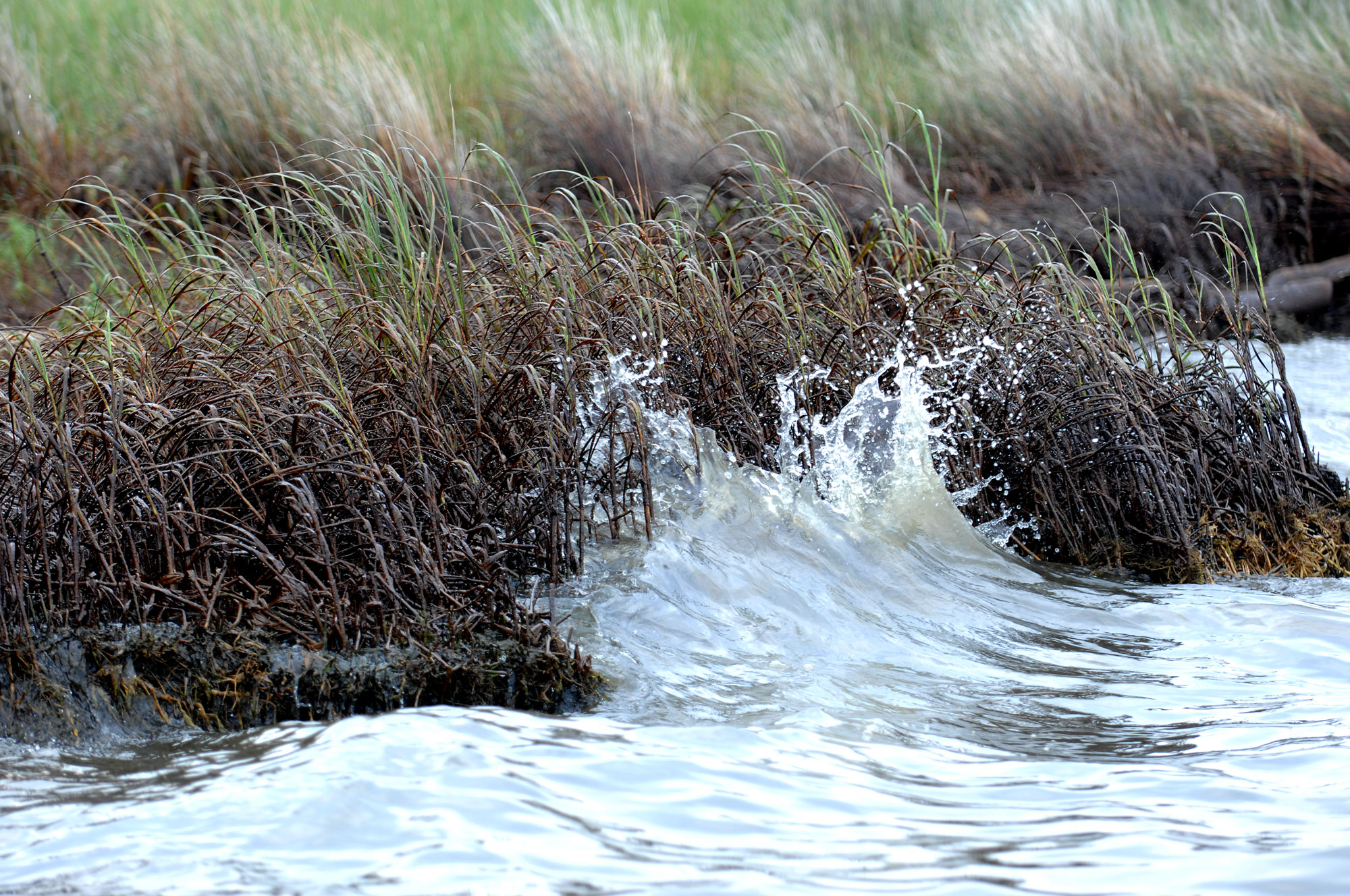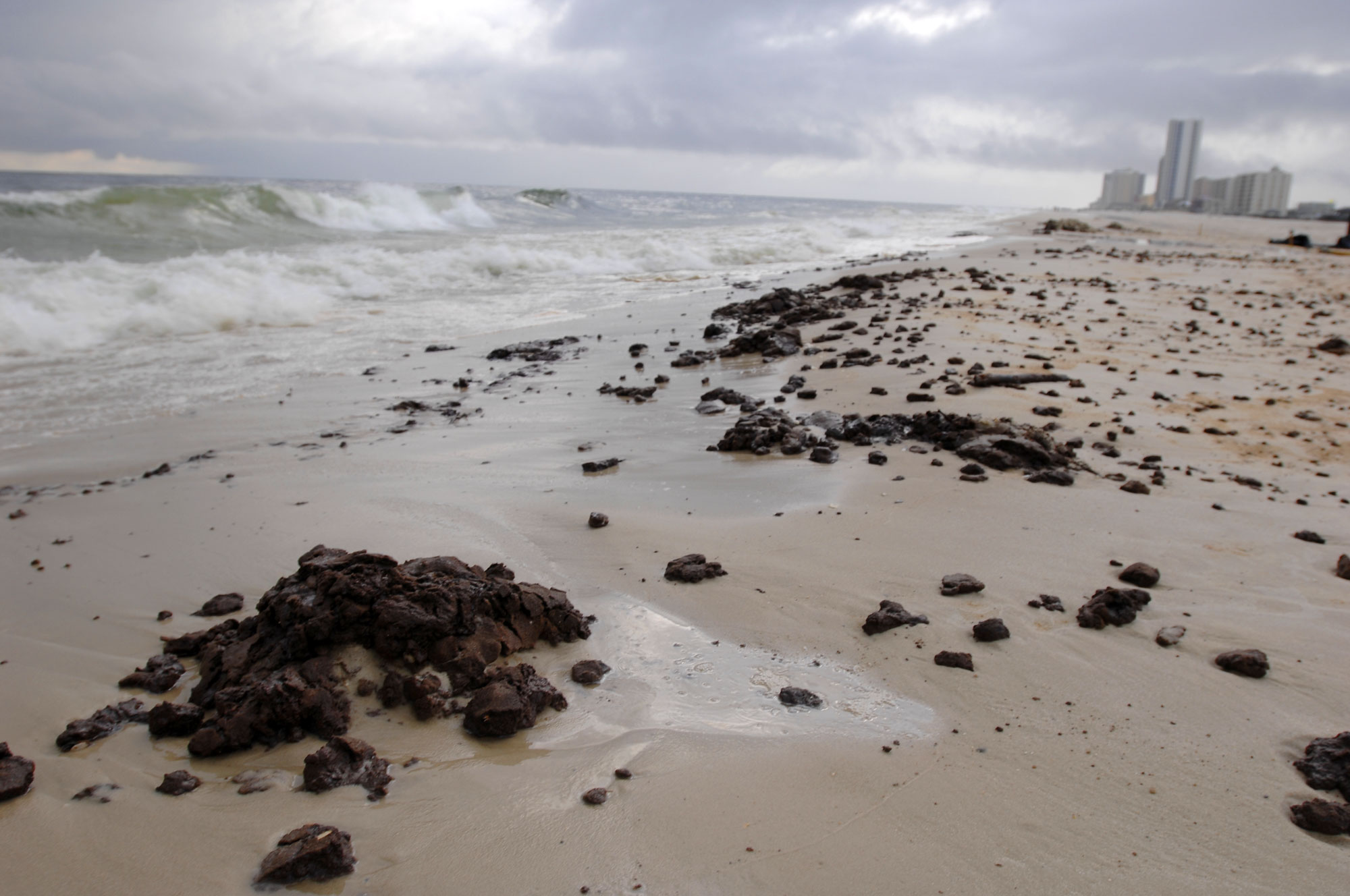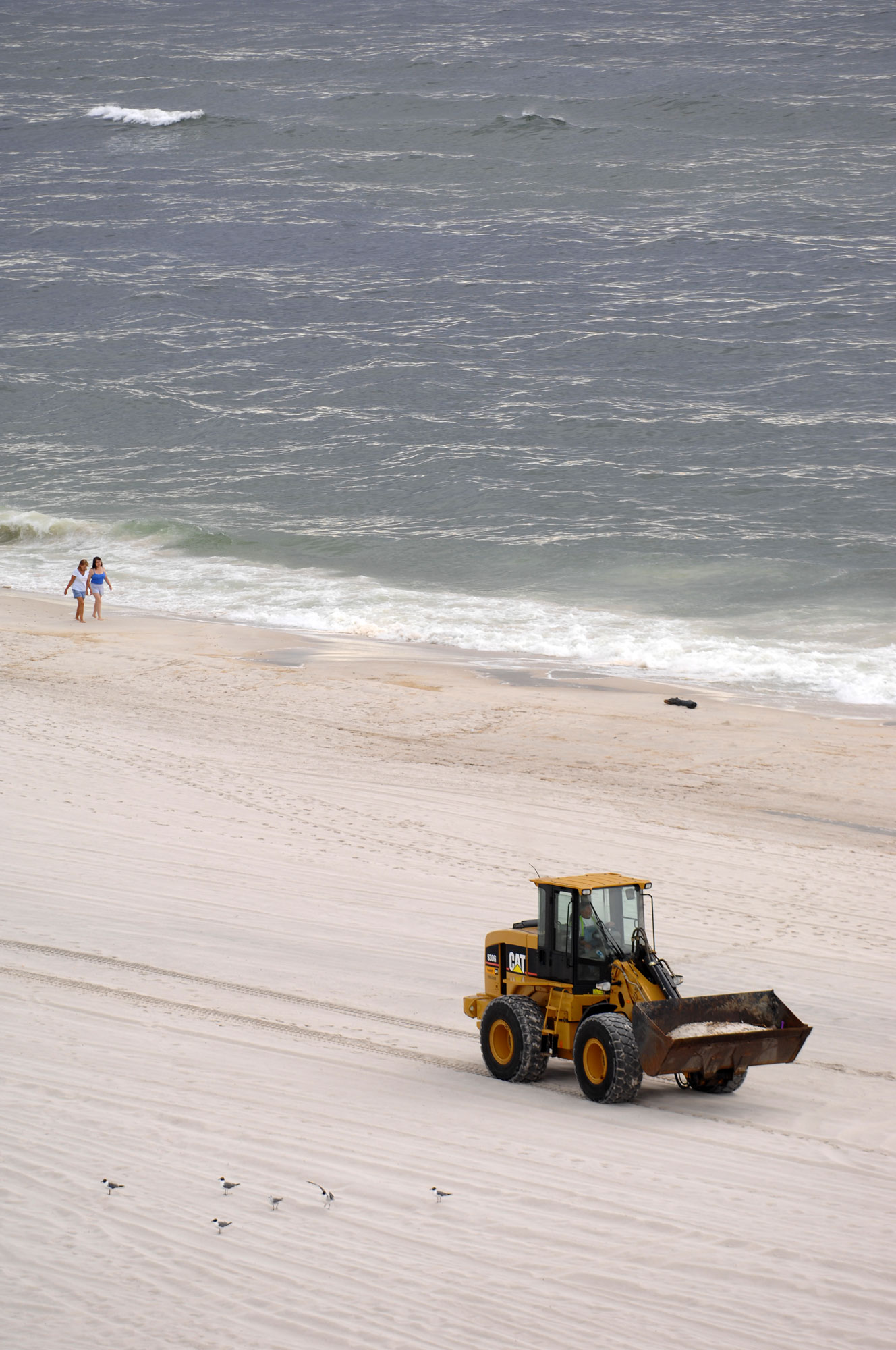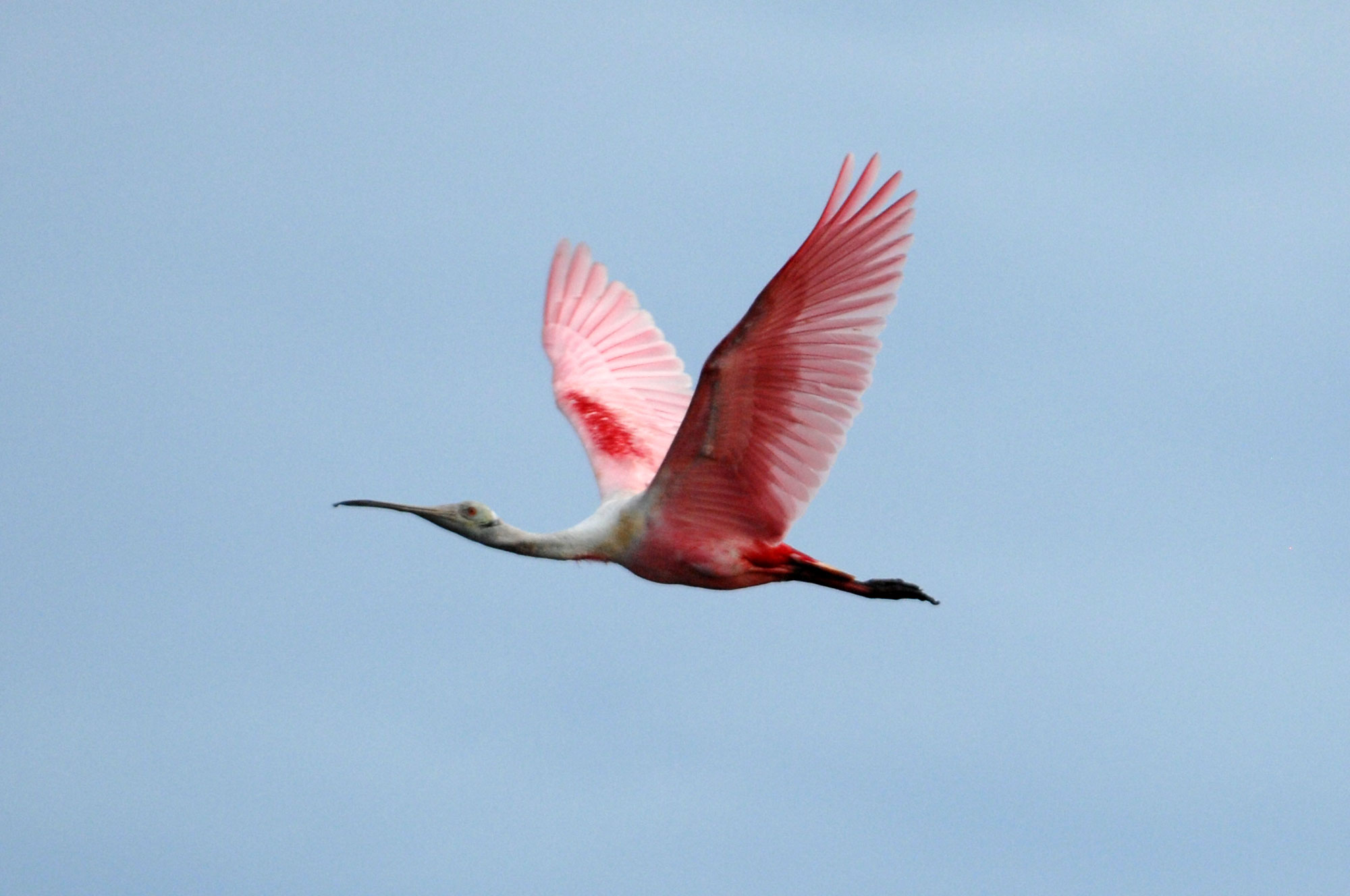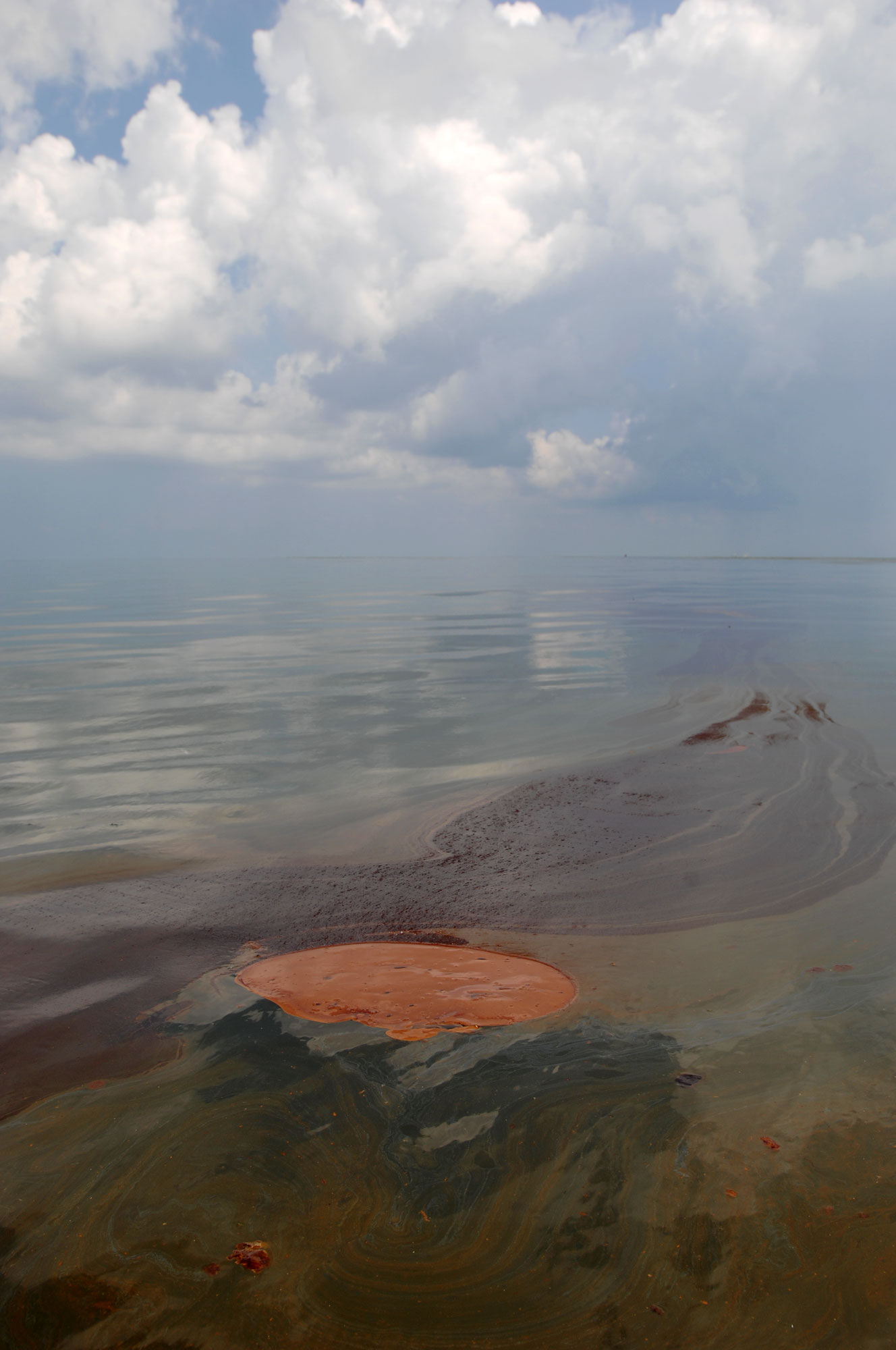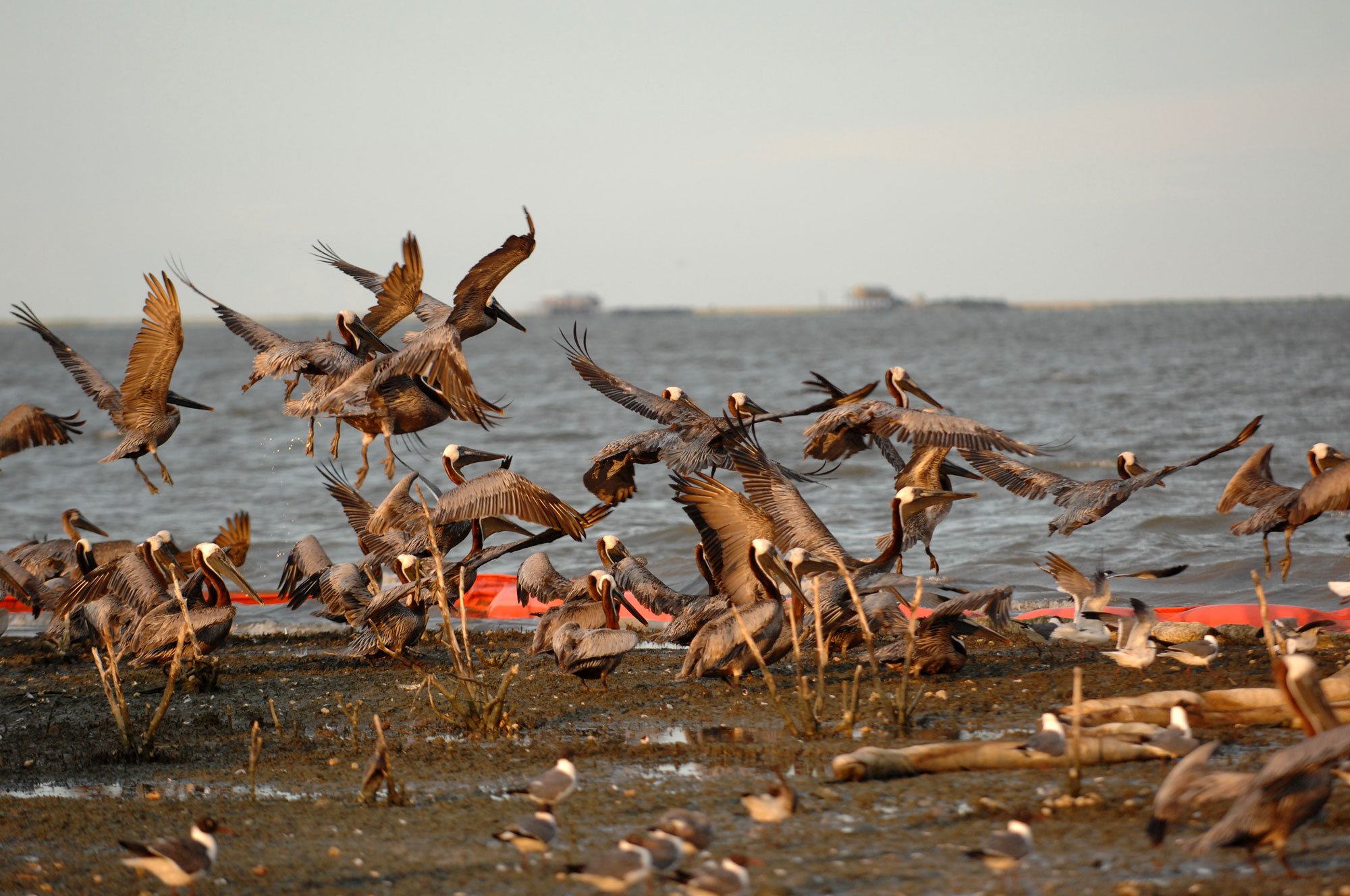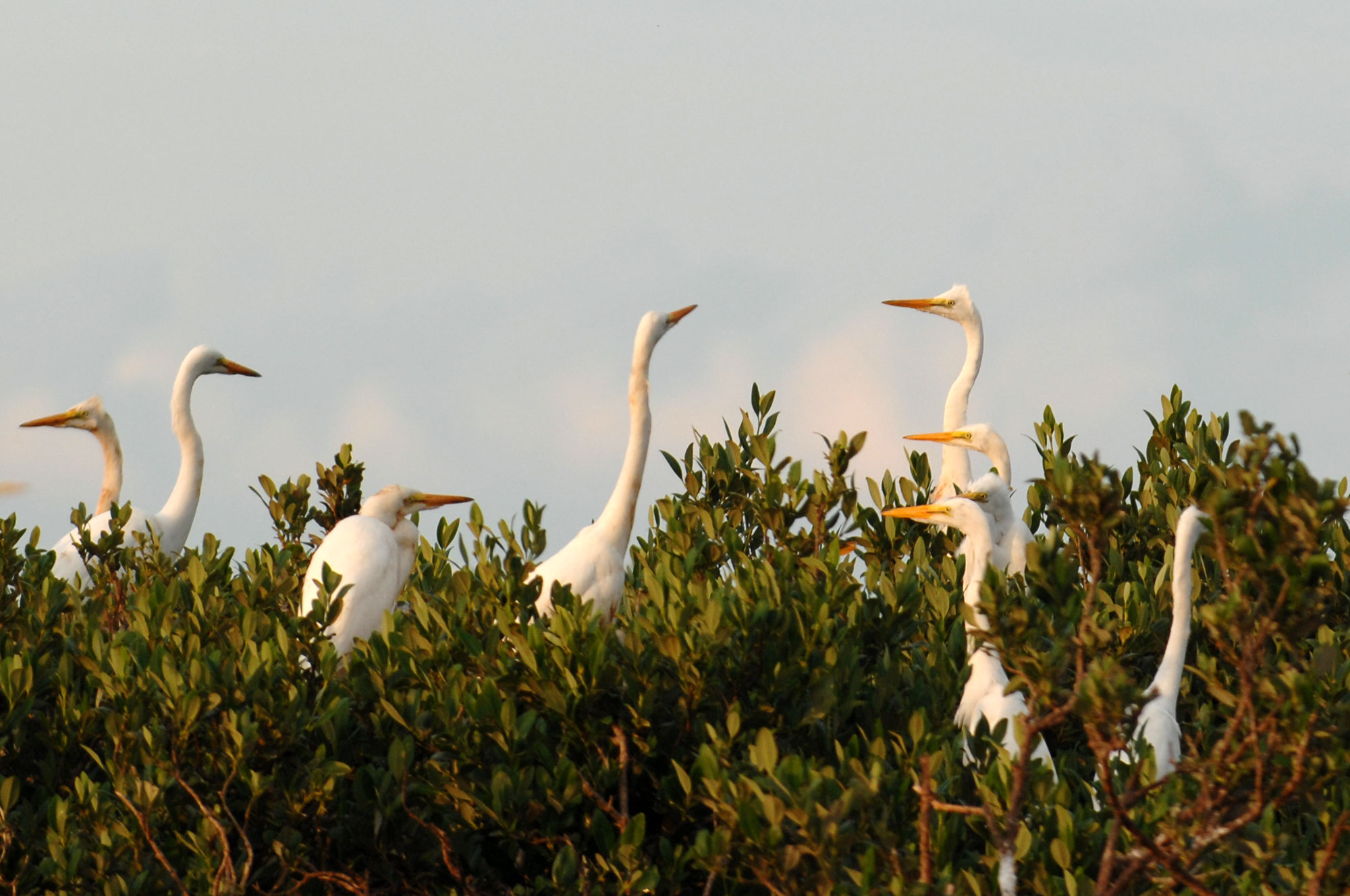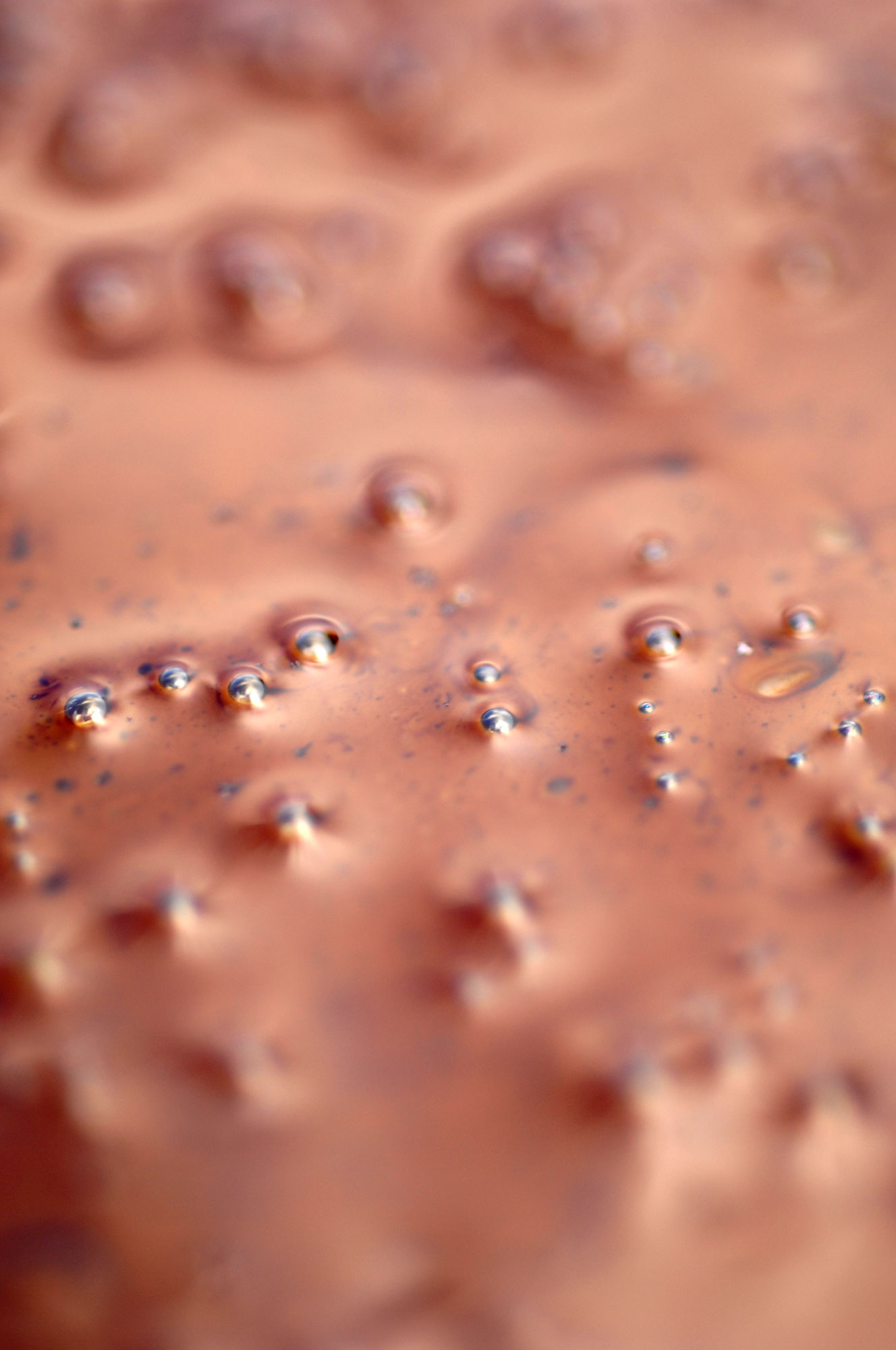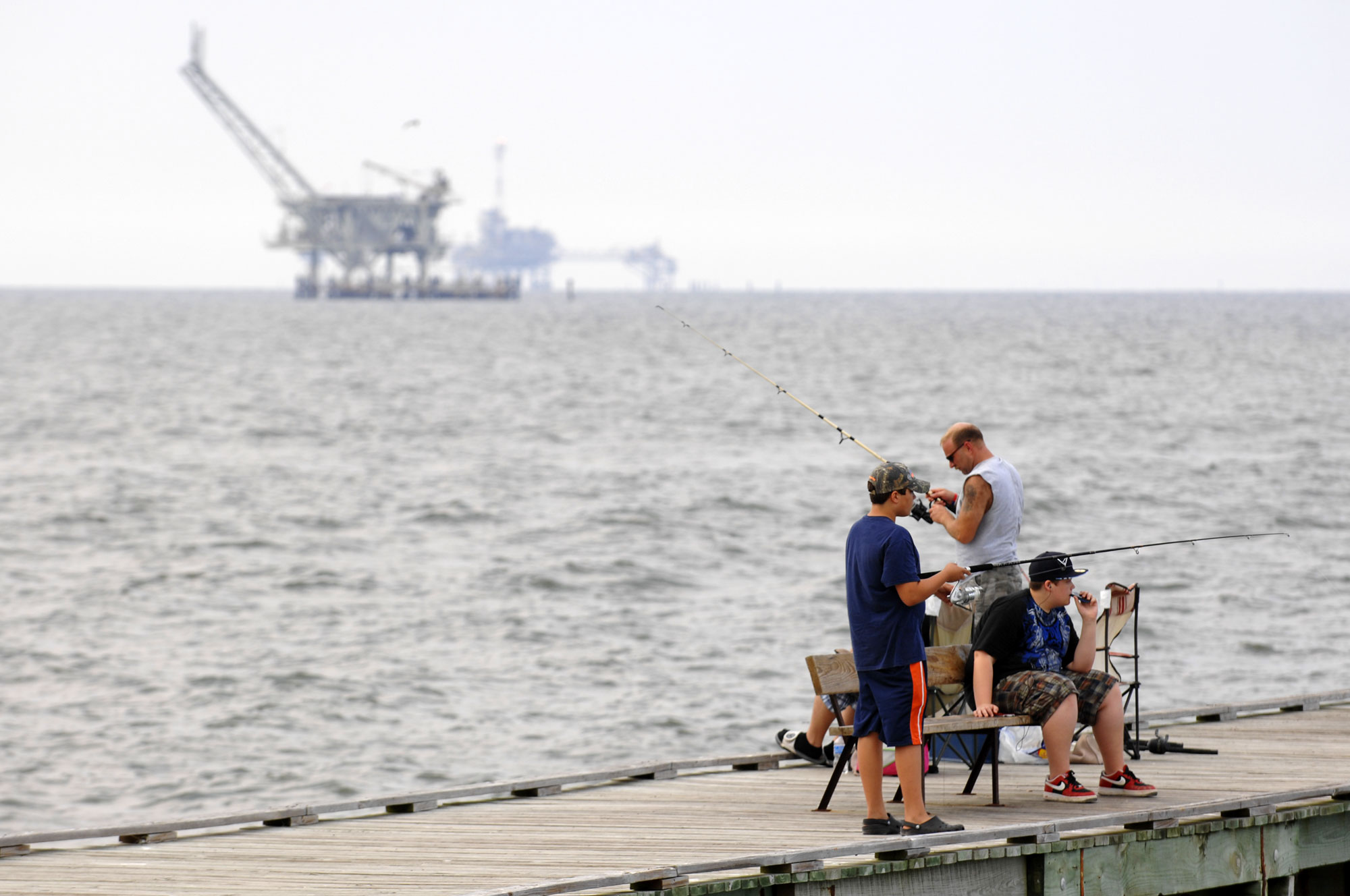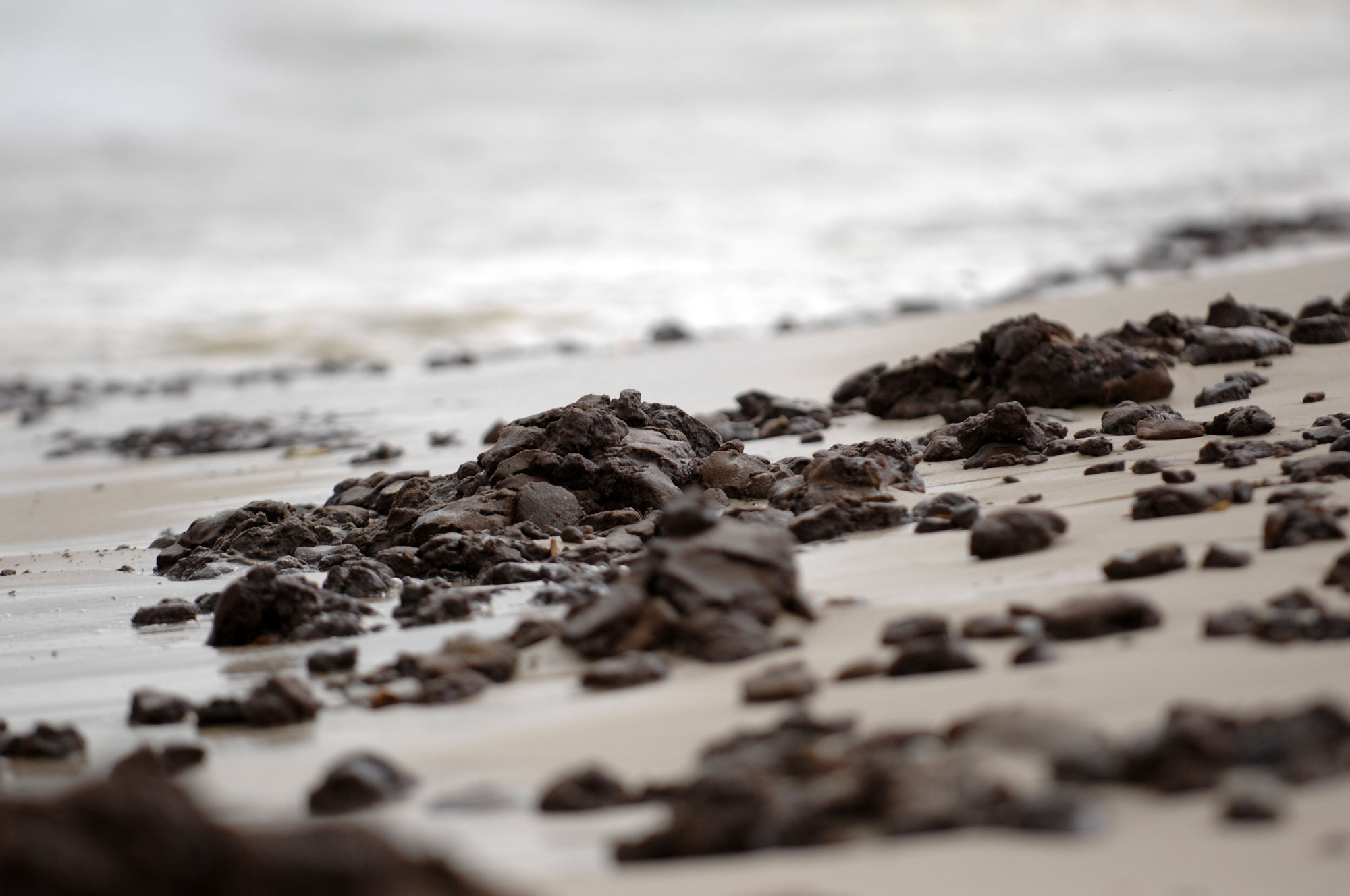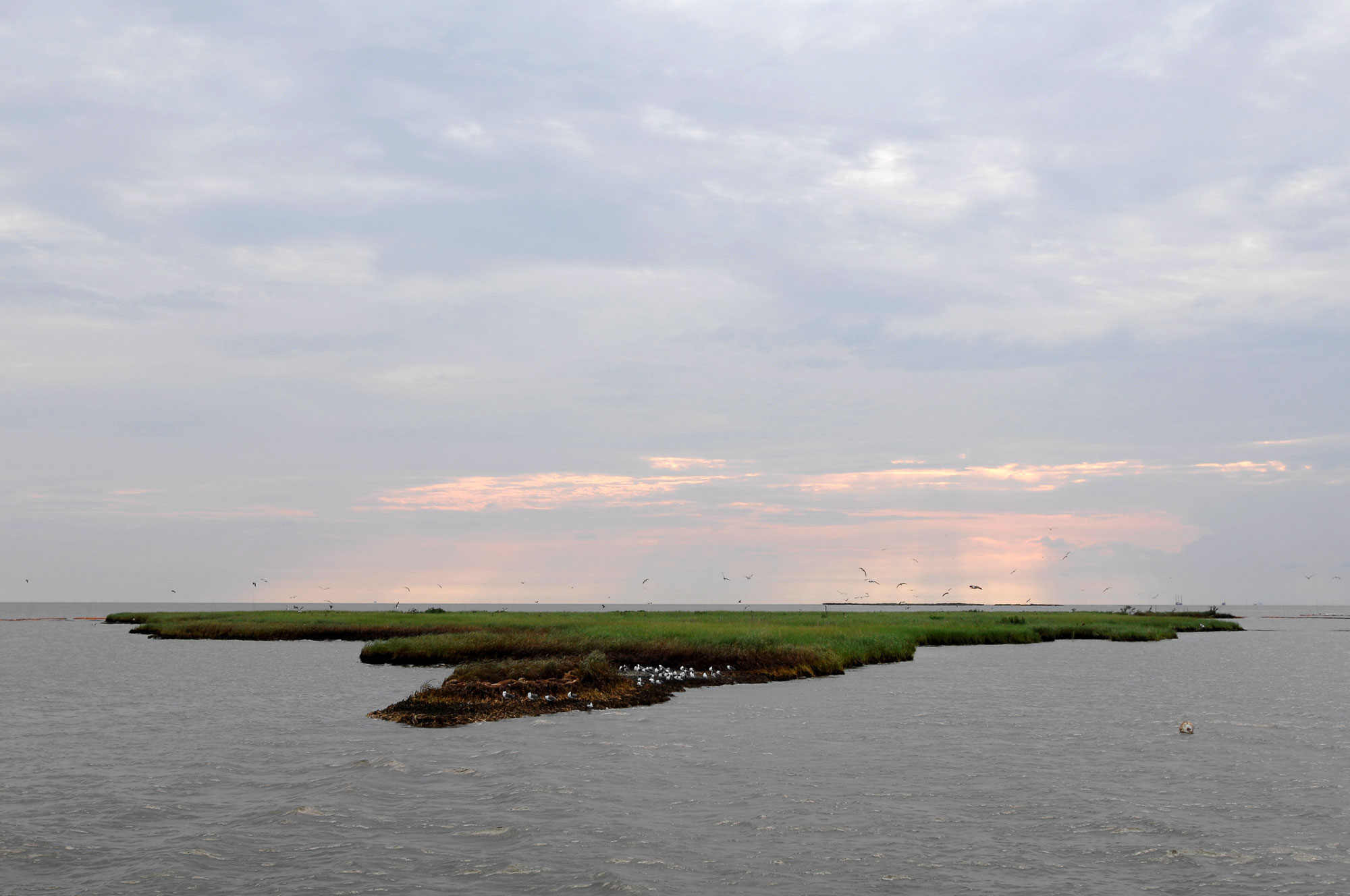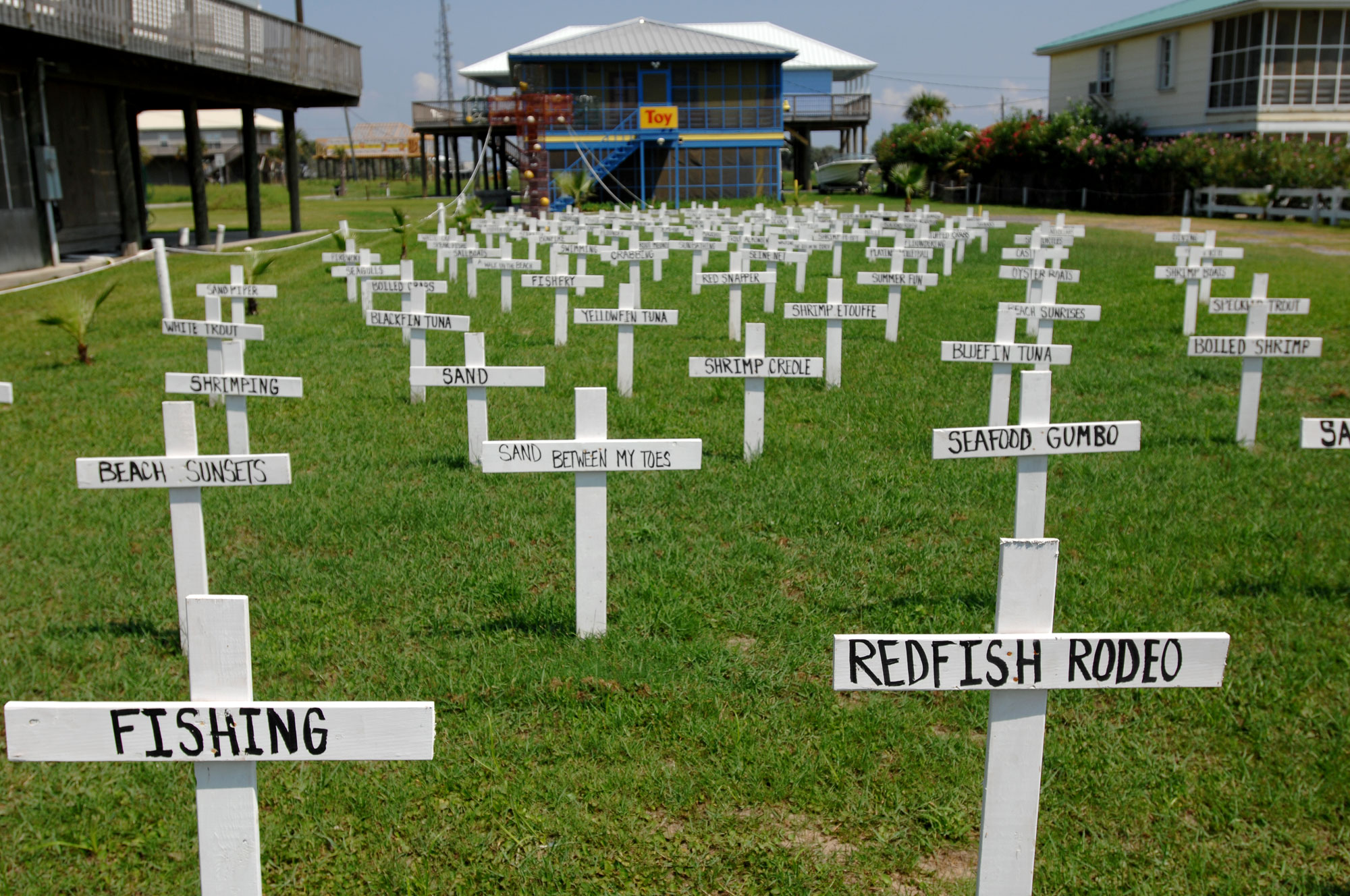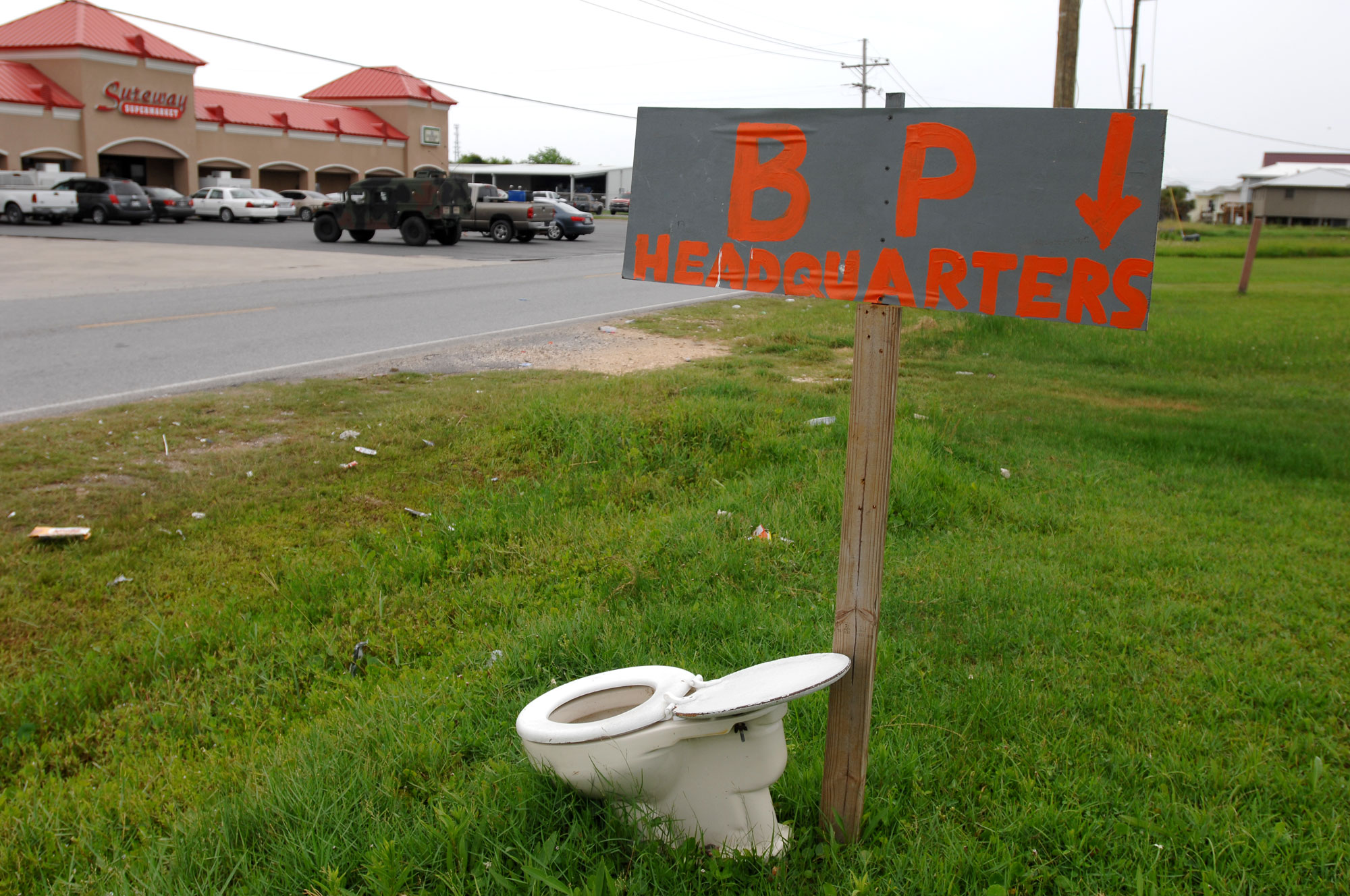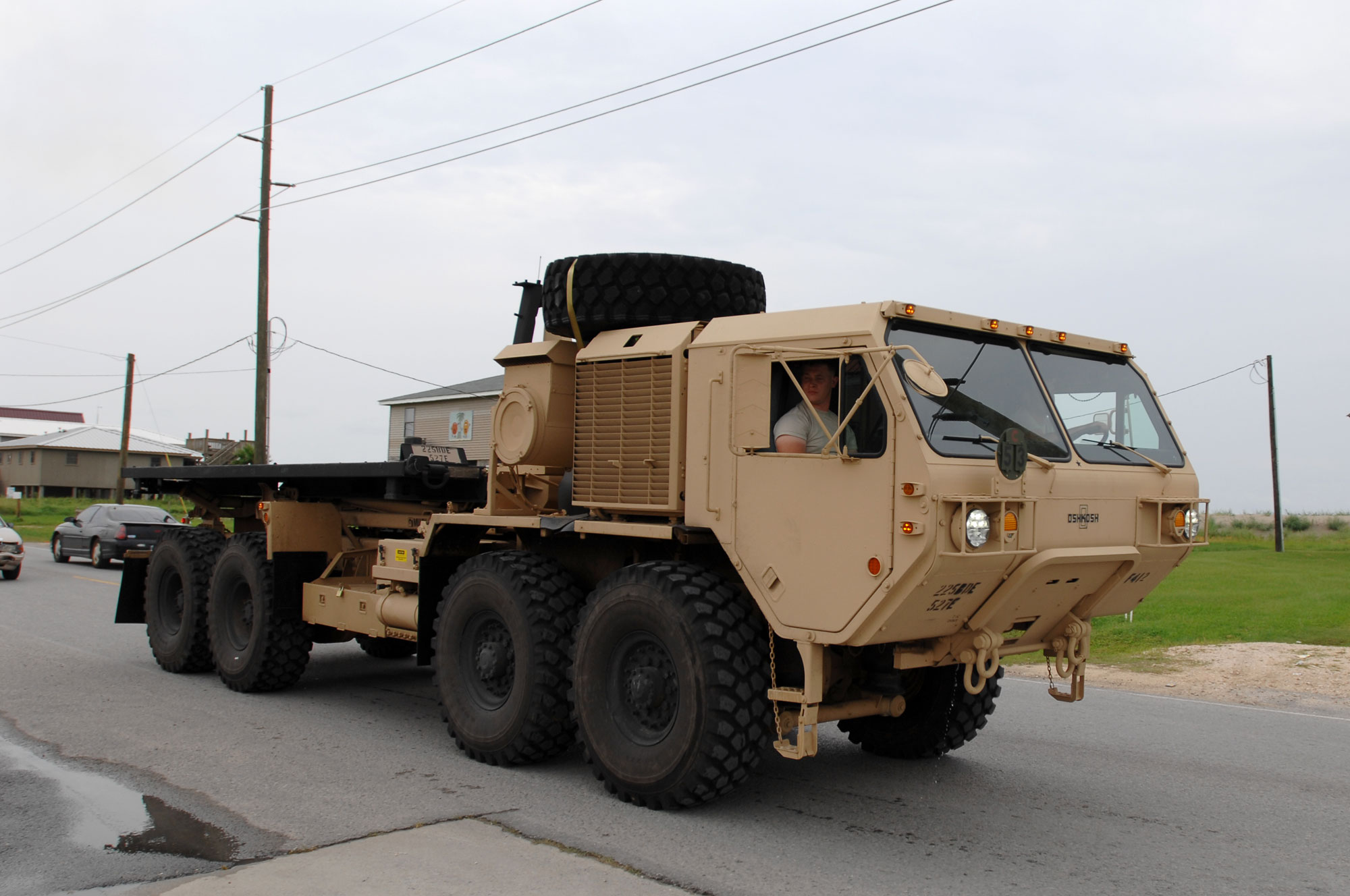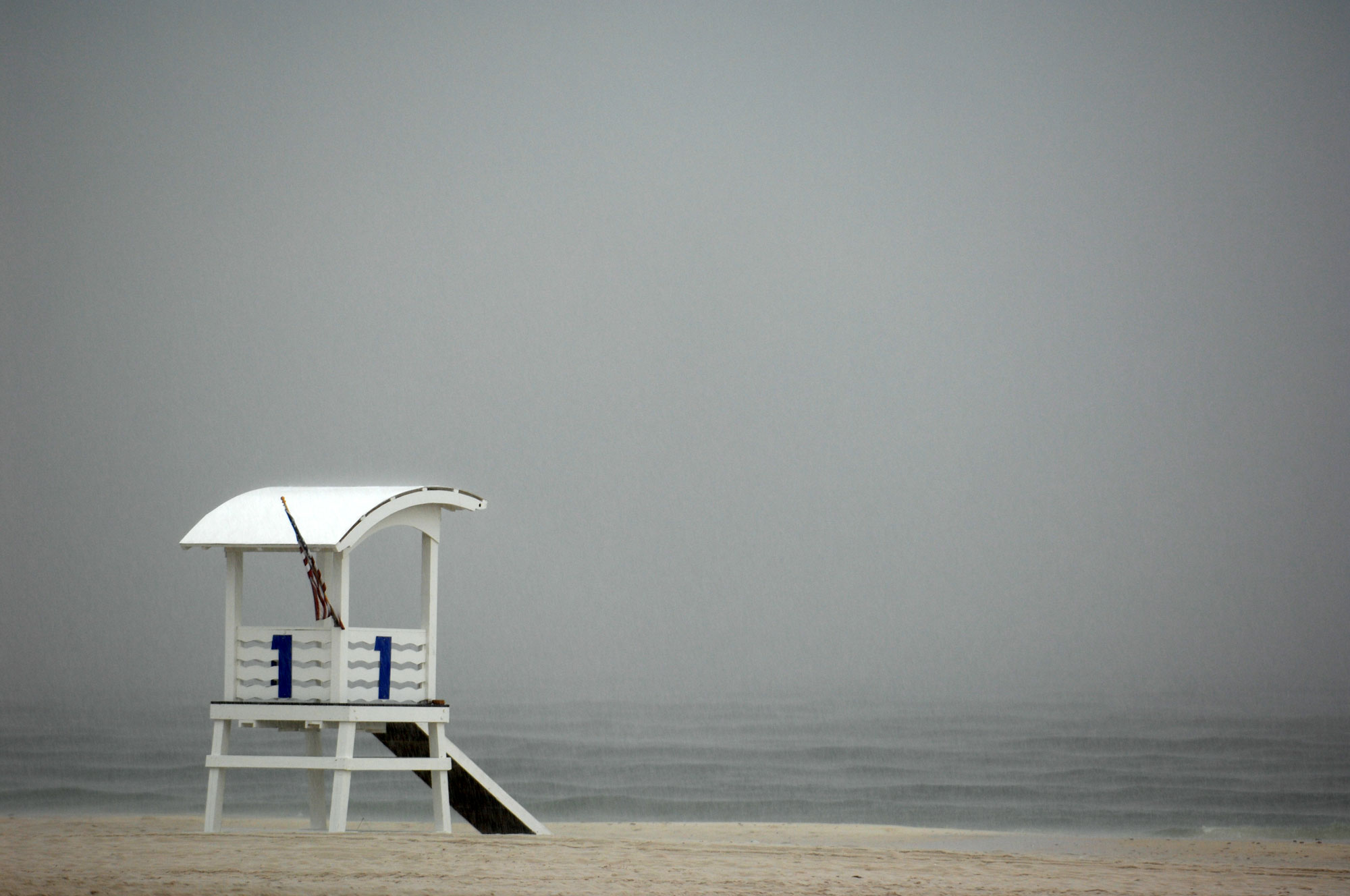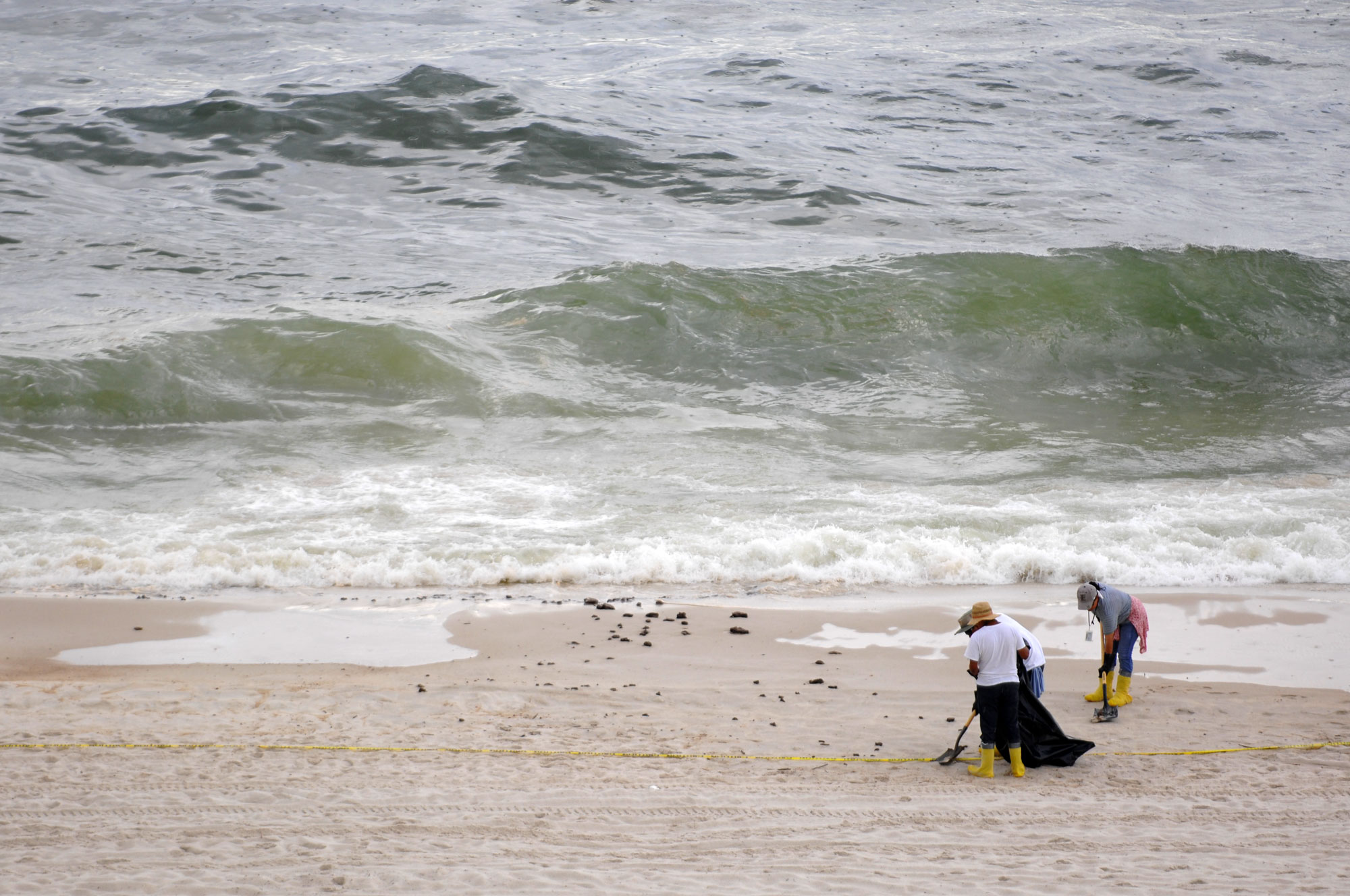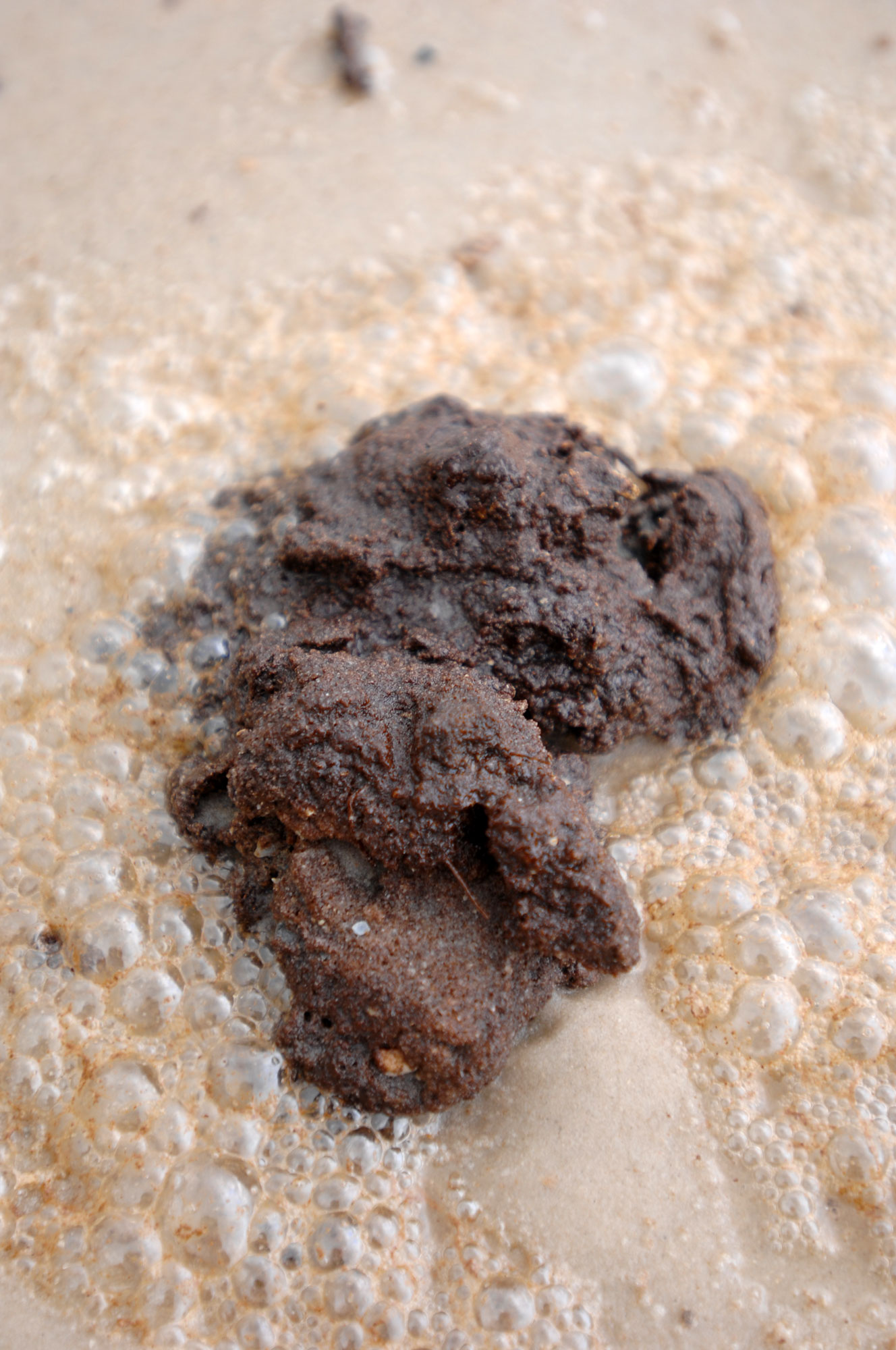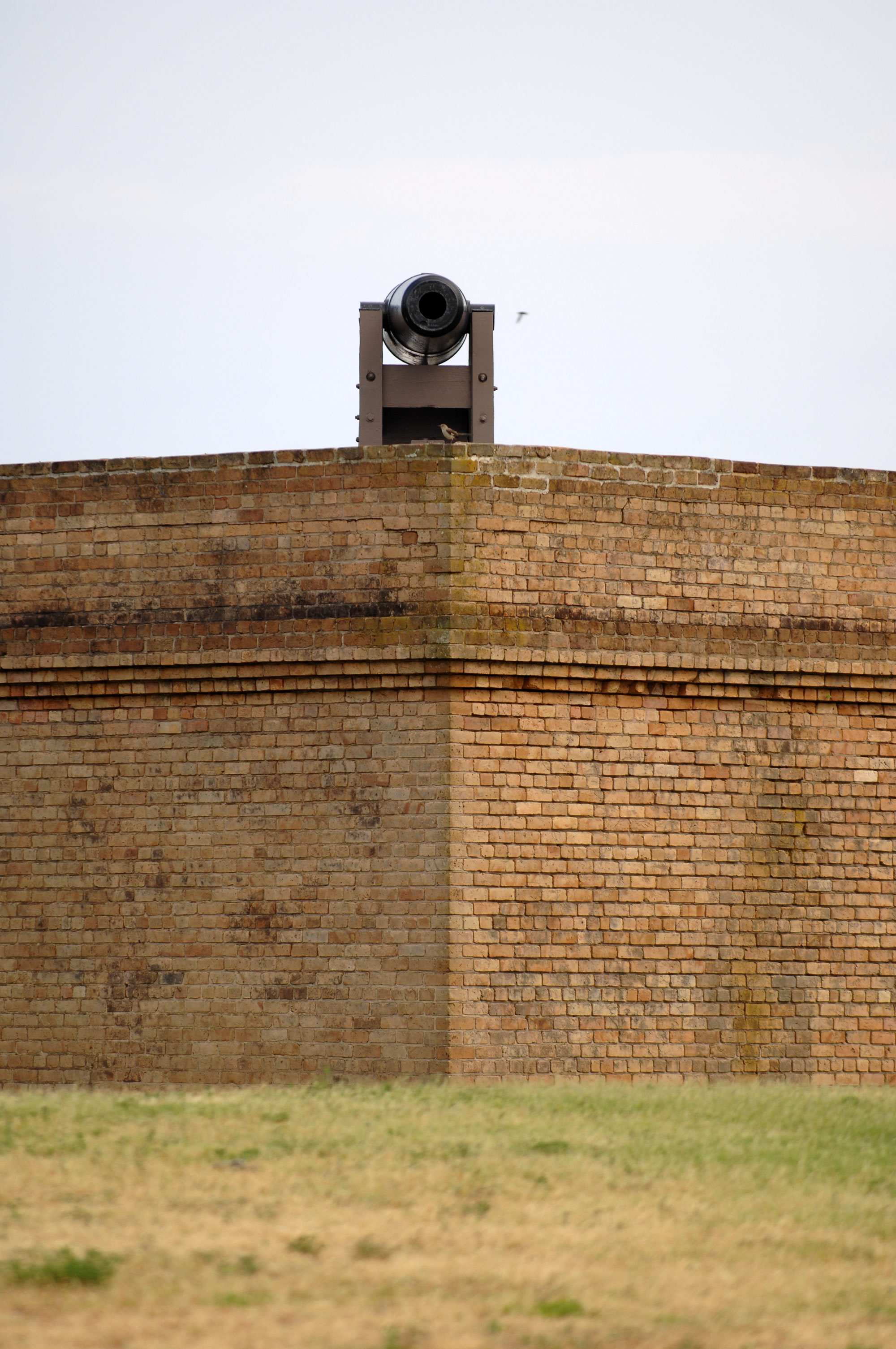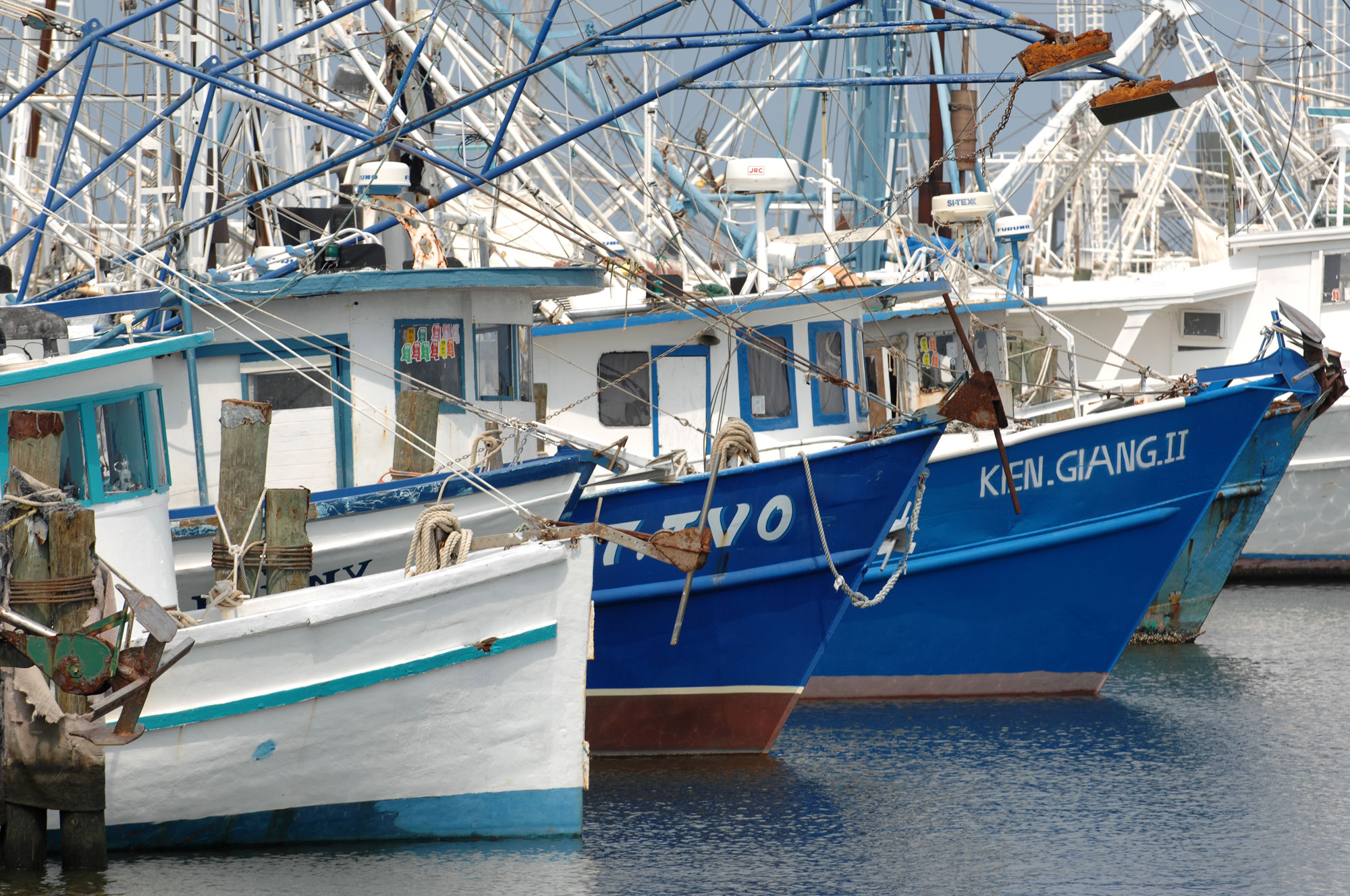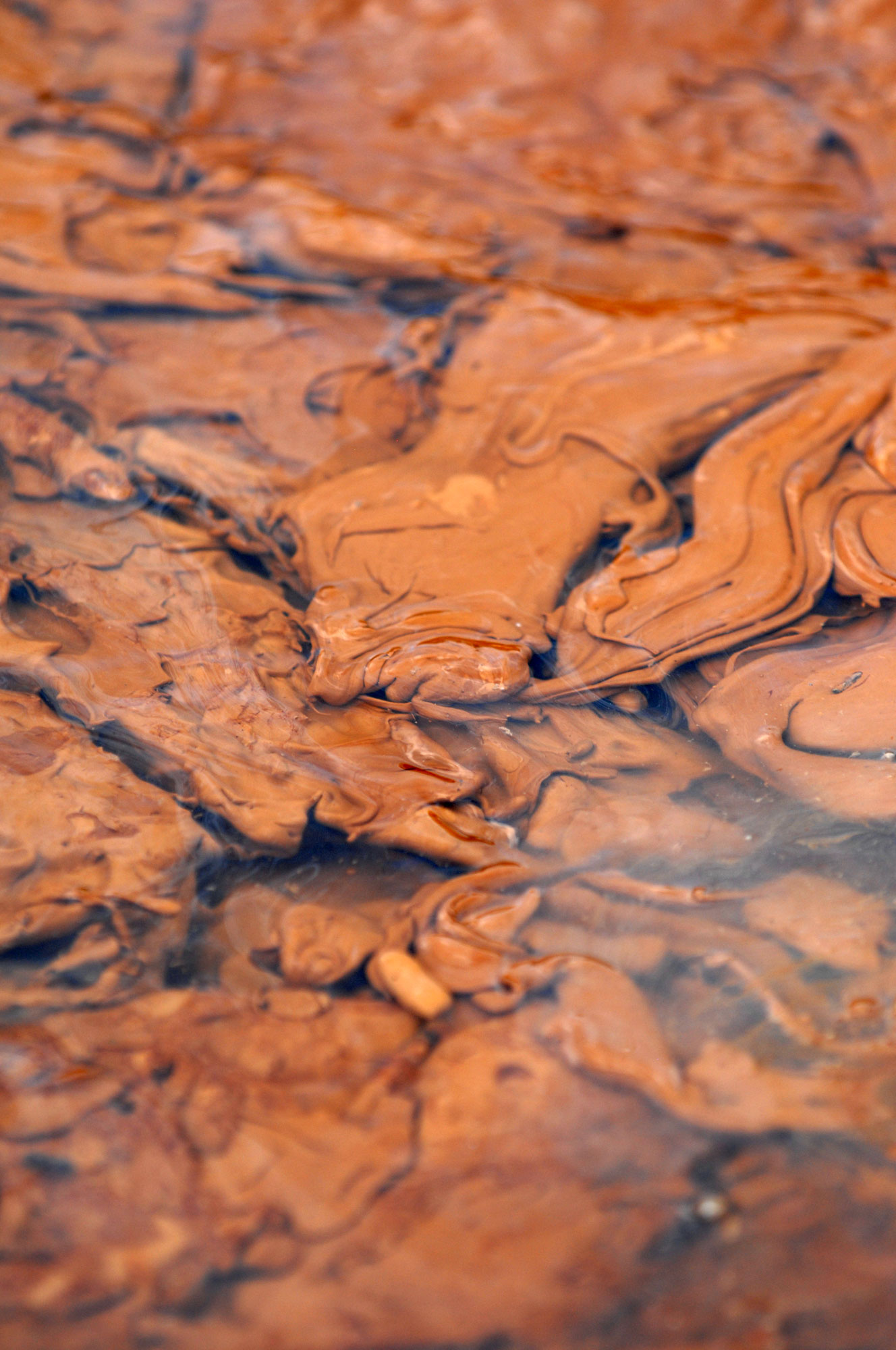After two weeks of reflection and a few thousand miles of distance I would like to share some thoughts and more photos of my trip to the Gulf coast to witness what I’ve now realized was just the beginning of the BP Oil Spill.
Grasses covered by oil.
I realize that much of what I saw has since been hit pretty hard by the sloshing oil, reinforcing the idea that we’re only at the very begining of this disaster.
The damage varied widely depending on where the oil had made land fall, and the clean up teams were doing a pretty good job cleaning as much as possible. That said, parts of Louisiana were really bad, but there are plenty of places where oil hadn’t reached for one reason or another. (This has since changed to everywhere has been hit) The consensus is that we’re only at the very leading edge of the oil and any large storm could absolutely devastate some communities here. As the almost certain succession of hurricanes and tropical storms each take their shot at the gulf coast, people will be holding their breath.
The sentiment among the locals changes the farther east we went. Everyone we talked to in Louisiana didn’t seem all that concerned about the spill, but were livid about the 6 month moratorium on drilling as it would kill thousands of jobs. The farther away from the big oil centers we got, the more people started expressing their worry about never being able to fish again. It was a pretty wild scene. BP’s attempt (in reality their ability) to control access to sites surprised me. They’re able to shut down access to whole sections of public land, hiring local sheriffs to do their bidding. I understand that some areas are dangerous and toxic, but anytime a private corporation with their own paid army shut down and don’t give access to the public is seems extremely sketchy. It was amazing to get the same answer over and over from people working in the cleanup. They would never comment on anything, and could never point us to someone who could. At one place on Dauphin Island, BP had contracted the local police to close off a large swath of the island (coincidentally the same part of the island with all the big houses). These are public roads, near beaches that didn’t have oil, closed to the public.
I’m extremely glad I had the opportunity to see this and talk to people there, but the more I saw, the more intractable our dependence on oil seems. We desperately need a fundamental shift in the way the world operates, but the reality is that oil is so intertwined in our daily lives (the plastic keyboard I’m typing on is made of oil) and creates such wealth, that changing that will probably take more than a disaster like this.
From our trip from the Mississippi delta to the Florida border I saw the range of environments that the oil will effect, from the massive expanse of Bayou and marshes that make up most of southern Louisiana to the wide white sand beaches of Mississippi, Alabama, and Florida.
The thousand plus miles we drove also gave us ample time to flesh out our arguments for and against BP, the environment and our dependence on oil. Each topic proved as perplexing and complicated as the next. The pros of one complicating another. We as a world are built on oil. There’s no argument about that. We wouldn’t be where we are without this seemingly plentiful, energy dense substance. It’s flexible and it’s powerful that’s for sure. Oil in one way or another permeates every aspect of our lives. It has dominated and shaped our world since it became widely available. It allowed us move out of the cities, spreading ourselves to such an extent that the thought of not having a car is inconceivable to many people today. Oil allows us to eat food from the other side of the planet and comfortably live in any climate.
To go a day without oil is a challenge that may be impossible in this day and age. You can’t brush your teeth, not with a plastic tooth brush anyways, drive your car, ride your bike, walk on the street, or even wear your favorite Patagonia fleece. Would you like lunch? That better be food you grew yourself, but not in plastic pots and not tilled with a rototiller.
Does this mean that we’re partially responsible for the oil spill? Possibly, but no more than an airline passenger being responsible for the plane crashing.
At times it seems as if we’re so dependent on that sweet crude that moving away from it seems impossible. But moving away from it is the only way for our world to make the next great leap forward. It’s the crux of my generation and all that follow, to find a new, plentiful, reliable, and less polluting source of energy. Current ideas and innovations are great and a step in the right direction, but they are only a drop in the ocean when compared to what oil currently does for us.
Where should this innovation come from? Should the government be involved? Should oil and other polluting industries be priced in a way that takes into account their environmental impact?
In my own opinion, I truly believe that we need to make a real push to get away from polluting energy sources and make a shift in our society toward sustainable growth, although with the global population as it sits today we may be past the point of sustainable growth. I think it’s both our government and every individual’s responsibility to do what they can towards this goal. Unfortunately the oil industry creates such wealth for everyone involved (i.e. states, governments, and companies) that renouncing it will take more than goodwill on our part. It will take us citizens to push for what we know is the right thing to do. We need an overwhelming push in regards to science and innovations. We need the government to think more than a year ahead. We need people to realize that gasoline shouldn’t be this cheap. We’ve lived beyond our means for too long, both monetarily and environmentally. Should we tax gas? Yes. Should we tax coal? Yes. The USA has been a great innovator since it’s birth, but we grow stagnant without a proverbial gun to our heads. We saw a little glimpse of this when gas prices hit $4 a gallon. People started thinking that maybe that huge SUV wasn’t worth it. As prices fell, we quickly forgot what all the fuss was about. It doesn’t help that the government has been slow to encourage new ideas in efficiency, only just recently pushing for a slightly higher fuel standard.
I’ve always said that the best ideas come from working with restrictions. To work outside of the box, you first need a box. Without some long term, progressively tightening regulations, what’s the reason for anyone to improve?
If the government sets these long term goals for industries, it gives them ample time to plan for their future. I would advise against the government picking sides, but only to set standards that must be achieved. Let the free market decide the best answer to any given problem. The best part of this kind of solution is that the general public won’t even notice the difference. Did you notice when toilets went from 10 gallons to 5 gallons per flush? Or when refrigerators had to cut their power in half? Probably not. Instead of being happy with what we’ve accomplished, we need to always continue to improve our efficiency.
What about the cost? The arguments and objections come from all angles. The standard response from industry when they’re told they need to increase efficiency is to say it will cost far too much, jobs will be lost, and lives will be ruined. Unfortunately some of these things are necessary to move our society away from the precipice. We need a fundamental shift. It’s time to get rid of your SUV. It’s time to move closer to cities. It’s time reign in our ridiculous over indulgence in every aspect of life. It’s time to diversify our energy sources. When a mining town closes, all is lost. Shall we as a country or as a world face the same future when the oil runs out?
Unfortunately, the sad truth is that this spill won’t effect our dependence on oil. Since this well wasn’t even producing oil yet, it won’t even effect the price at the pump. We as a collective world don’t generally react too strongly to environmental disasters as there’s very few people effected and the alternatives (giving up that SUV) just don’t weigh on us enough, or we justify them away.
These are hard questions. Do we completely change the way we live, or do we change the place we live and accept it? Many people may feel sad about the damaged gulf coast, but will see it as an acceptable loss as long as oil keeps flowing. It’s come to the point where if we continue down this path we must start thinking about acceptable losses.
Sea cemetery, Grand Isle, LA.
Is the loss of blue fin tuna spawning grounds in the gulf of Mexico an acceptable loss? There must some other fish out there I can eat in my sushi. How about polar bears? Or pelicans? Or white sandy beaches? Different people will say different things, but the answer should be that none are acceptable losses. We can change. We can live in a cleaner world. It’s not going to happen overnight and maybe not completely in my lifetime, but it can happen. While we’re best with our backs against the wall, wouldn’t it be less catastrophic (and stressful) to start now? There are options.
Grand Isle, LA
National Guard troops roll through Grand Isle, LA.
Rain pours down on Gulf Shores, AL.
Workers clean the beach, Gulf Shores, AL.
Tar ball.
Fort Gaines, Dauphin Island, AL.
Eastern Brown Pelican cruising at sunset.
Fishing boats wait near Pass Christian, MS.
Oil.
Please spread the word. Share this blog with your friends.
All of these photos and more are available for digital stock photography, prints or mounted at my Photostore
To inquire about assignments and availability please email or call
802.355.3728
See another blog entry about the BP Oil Spill

